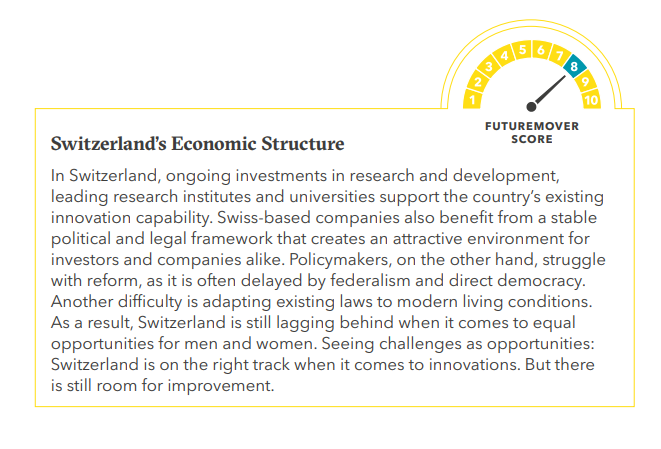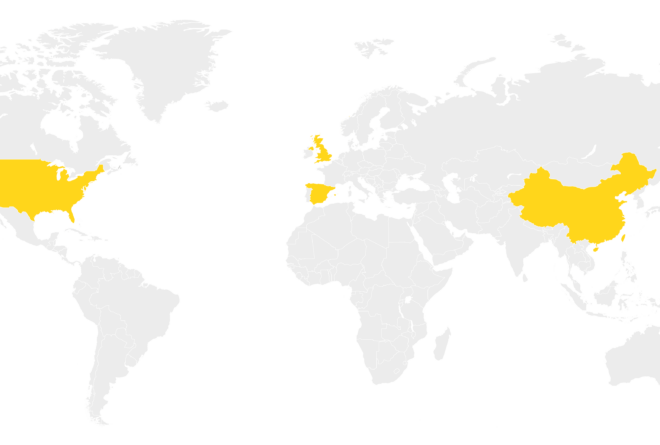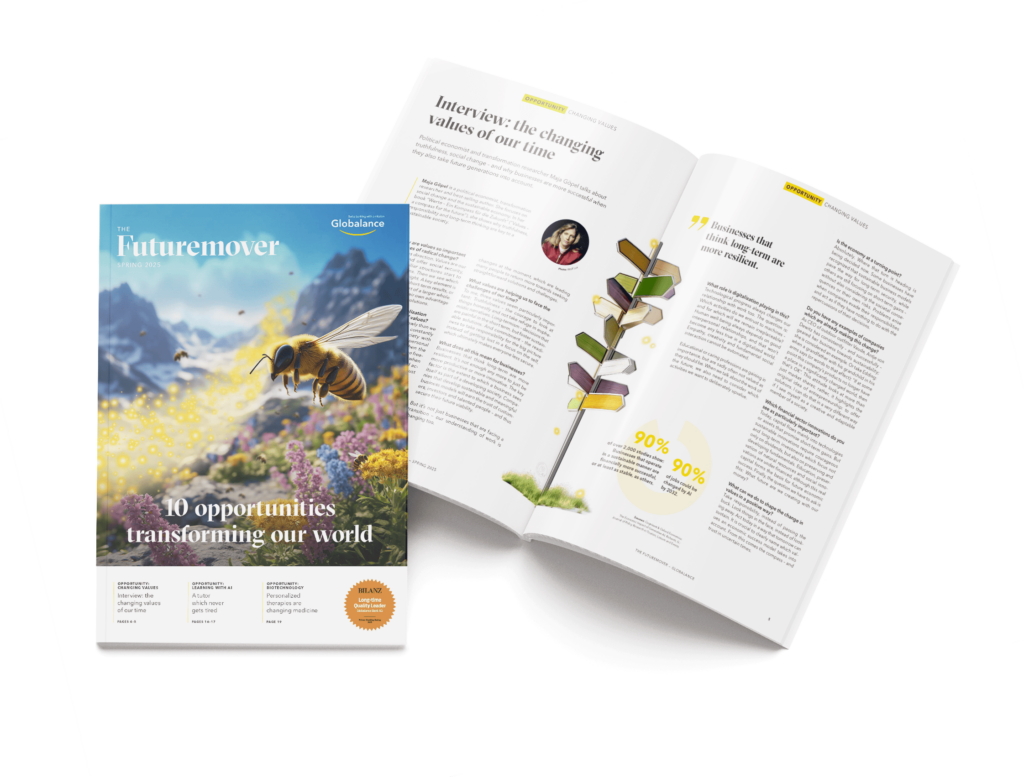News & Trends
Economic Structure: Is Switzerland a Futuremover?

CREATING AN ECONOMIC ENVIRONMENT FOR THE FUTURE AND FOR THE LONG TERM requires good planning and a government-backed framework. Switzerland is doing well here, but it still has potential.
The economic environment in Europe will become more competitive and demanding over the next few decades. The emerging markets have become our competitors and caught us up or in some cases even overtaken us in some areas. Switzerland is involved all over the world and to remain competitive, we must protect today’s still attractive conditions and adapt them dynamically to future developments.
Switzerland — an Innovative Country
According to the “Global Innovation Index 2023”, Switzerland is the country with the highest innovative strength in the world for the sixth year in a row. In view of 67.6 points out of 100, it ranks ahead of Sweden (64.2 points) and the United States (63.5 points). At the same time, innovation in our country still predominantly takes place at major established corporations (for example, pharma and industry). The whole world is competing for young companies and talent: so we must create an attractive economic environment for these companies and clusters.
Switzerland — a Well-Regulated Country
Switzerland benefits from a large number of regulations that are established at both national and international level. These promote the country’s economic stability, innovative strength and competitiveness, and include the dual education system as well as a detailed data protection law and banking secrecy. We are one of the model students worldwide. Nevertheless, bureaucracy and regulation have constantly increased in the last few years and we must invest in a good framework in future as well.
Switzerland
is the country
with the highest
innovative
strength in the
world for the sixth
year in a row.
Switzerland — a Country with International Partnerships
Switzerland pursues an open economic policy and benefits from numerous free trade agreements with various partner countries. As the name implies, the parties involved waive customs duties, export restrictions and import quotas, which makes imports and exports easier. In addition to the EFTA Convention and the agreement with the EU, a total of 33 free trade agreements existed with 43 partners as of 2023. The free trade agreement with China has been particularly important for Switzerland in recent years. For example, thanks to this contractual agreement Swiss companies actually saved 220 million US dollars in 2022, compared to 70 million US dollars in 2018. In Switzerland, the Confederation and other institutions also engage proactively in promoting international networks. They also help facilitate the transfer of technology and know-how across borders. Always with the aim of positioning Switzerland as a futuremover.
Requirements for a Sustainable Economic Structure
A competitive economy and adaptable environment are crucial for a society’s prosperity. Particular attention must be paid to the following key aspects:
INNOVATION CAPABILITY
Research and development
Education
ATTRACTIVE FRAMEWORK
Low fiscal quota
Efficient bureaucracy
Smart regulation
DIGITAL INFRASTRUCTURE
Broadband networks
Digitisation
FLEXIBILITY UND ADAPTABILITY
Labour market flexibility
Corporate structures
GLOBAL NETWORKING
Free trade agreements
International cooperation
Switzerland In An International Comparison

What We Can Learn from Singapore
Singapore’s “Smart Nation Initiative” enables the flourishing development of smart cities and supports the use of big data and the Internet of Things (IoT). The island and city state has a highly developed infrastructure that creates the basis for technological innovations. Fast broadband connections, modern research facilities and specialist technology parks lay the foundation for global trade and immaterial international exchange. The country also promotes international cooperation with universities. Companies and research institutes also receive comprehensive support from the country and other organisations, both financially and through expertise. In addition, there are tax incentives for start-ups, particularly in the areas of fintech, medtech and greentech. The objective of all of this is to provide the current innovation-driven economy with the best workforce.

These Are the Challenges to Be Mastered by Switzerland
Scarcity of resources
Imports are needed to meet the demand for energy, raw materials and food. Increasing water shortage during certain periods of the year and the limited availability of land are further challenges.
Demographic change
The population is ageing, placing a heavy burden on the pension and health care systems. At the same time, the number of people in employment is declining. Answers must be found to this challenge in order to ensure the financing of social security.
Regulation
Extensive regulations and bureaucratic obstacles, complex directives and lengthy approval procedures are holding back innovation. In addition, federalism makes cross-cantonal cooperation more difficult.
Climate change and pollution
Rising average temperatures and melting glaciers are a clear indication of climate change in Switzerland. This must be countered by new technologies and innovative methods.
Promoting an entrepreneurial environment
Creating an attractive environment for start-ups and young companies (financing, taxes, labour market).

Be part of the solution and stay informed with the Futuremover.
Subscribe now and shape the future!
Magazin abonnieren EN
"*" indicates required fields

Discover the entire issue
Read more articles from our current issue: ‘Is Switzerland a Futuremover?’.










